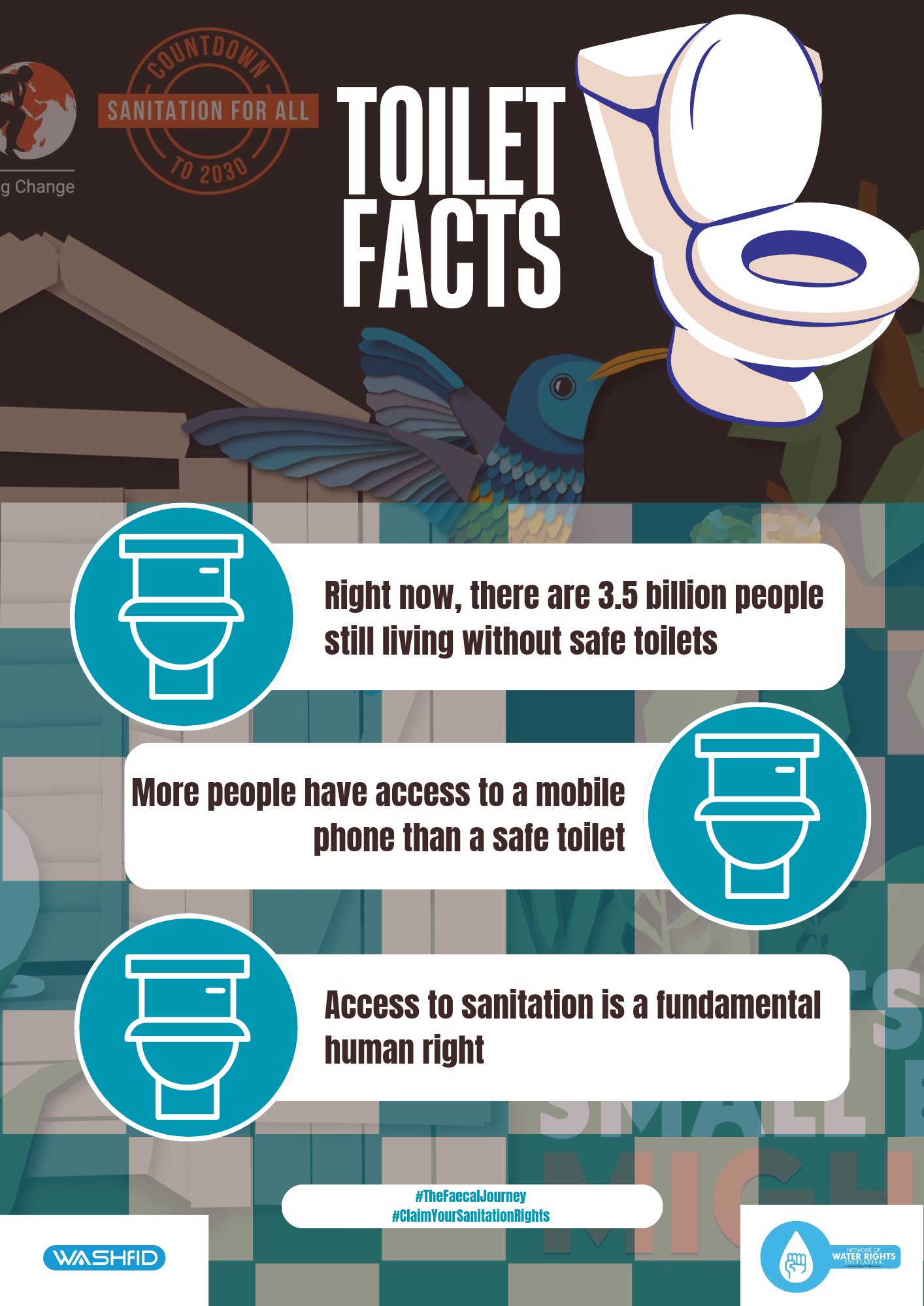|
Getting your Trinity Audio player ready...
|
Writes Kumbirai Mafunda
ON WORLD Toilet Day, Zimbabwe Lawyers for Human Rights (ZLHR) implored local and central government and other stakeholders to accelerate change in tackling the worsening sanitation crisis in the country and arrest the outbreak of cholera and other waterborne diseases.
World Toilet Day, which has been an annual United Nations (UN) observance since 2013, is observed annually on 19 November to celebrate toilets and raise awareness of the 3.5 billion people living without access to safely managed sanitation and to highlight progress in achieving the UN Sustainable Development Goal (SDG) 6.2, which speaks to safe toilets for all by 2030.
In 2023, World Toilet Day is commemorated under the theme “Accelerating Change”, which challenges people across the world to take action and help speed up progress on improving access to toilets and sanitation systems.
Sadly, with just seven years left to achieve the goal of meeting the UN Sustainable Development Goal 6 of Clean Water and Sanitation, which entails safe toilets and water for all by 2030, progress is reportedly and woefully off track, and yet access to safe and inclusive sanitation facilities is a fundamental human right.
Revelations by the UN that 3.5 billion people are living without safe toilets and that more than 400 million people are still practicing open defecation, pose a serious threat to nature and every person’s health and challenge everyone to work faster to meet the UN sanitation target of meeting Sustainable Development Goal 6 of ensuring safe toilets and water for all by 2030.
On World Toilet Day, ZLHR was in solidarity with the global movement to address the critical issue of sanitation and emphasises the importance of safe and inclusive toilet facilities for all.
Safe and clean toilets are not just about physical safety but they symbolise people’s belief in dignity, respect, and equality for every individual.
It is extremely appalling that in 2023, more than a decade since the last deadly cholera outbreak, the medieval ailment has made a devastating comeback which is putting millions of Zimbabweans at risk.
The fact that Zimbabwe is still stalked by the ever-present threat of a medieval disease thought to have been eradicated centuries ago and which is preventable is an indictment on both local and central government actions on improving sanitation and access to hygiene services such as toilets.
The current cholera outbreak is a terrible consequence of local and central government’s failure to invest in and manage basic water and sanitation infrastructure.
Considering the fatal experiences of 2008, the local and central governments should have been better prepared to respond to the cholera outbreak but it appears that no lessons were learned from the previous devastating epidemic.
It is disconcerting that the conditions that more than a decade ago allowed the cholera epidemic to flourish, continue persisting in the country, and in the face of dysfunctional healthcare, medieval ailments are turning people’s lives into living nightmares.
There must be full accountability at both local and central government for the failings that have resulted in the resurgent outbreak of cholera, the disease that is claiming lives in violation of the right to life.
It is imperative that local government and central governments urgently take and implement remedial measures to arrest the spread of cholera and safeguard precious human life and health.
To accelerate change and eradicate the sanitation crisis and stop the outbreaks and horrors of medieval diseases, ZLHR calls upon local and central government and other stakeholders to;
- To immediately and decisively take action to stop people from contracting and dying from preventable diseases such as cholera;
- Provide safe toilets and water for all now and by 2030;
- Invest in infrastructure and sanitation facilities and ensure the realisation of the human right to sanitation, which is crucial for the protection of constitutional rights;
- Ensure universal access to safe and affordable drinking water for all.






